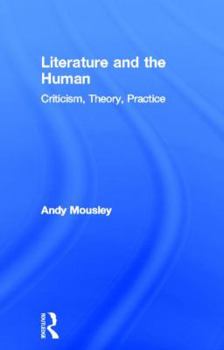Literature and the Human: Criticism, Theory, Practice
Why does literature matter? What is its human value? Historical approaches to literature have for several decades prevailed over the idea that literary works can deepen our understanding of fundamental questions of existence. This book re-affirms literature's existential value by developing a new critical vocabulary for thinking about literature's human meaningfulness. It puts this vocabulary into practice through close reading of a wide range of texts, from The Second Wakefield Shepherds' Play to Mohsin Hamid's The Reluctant Fundamentalist. Individual chapters discuss:
Literature's engagement of the emotions Literature's humanisation of history Literature's treatment of universals and particulars The depth of reflection provoked by literary works Literature as a special kind of seeing and framing
The question at the heart of the volume, of why literature matters, makes this book relevant to all students and professors of literature.





